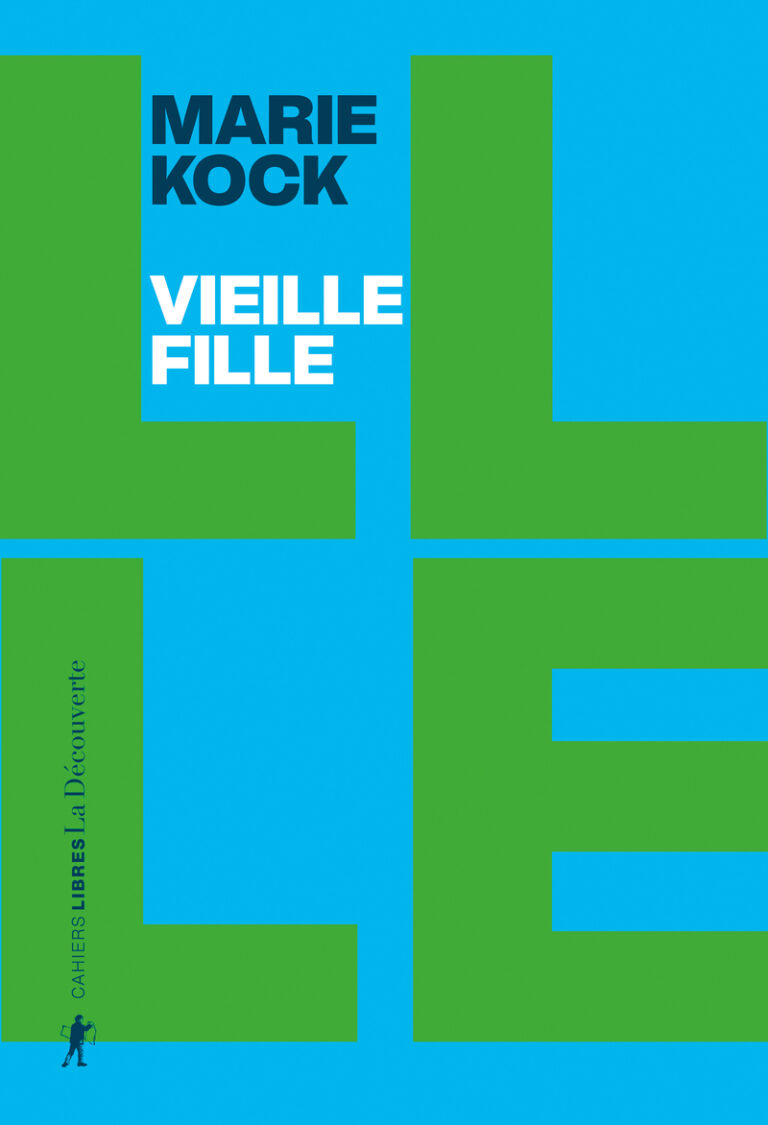The myth of the spinster is the absolute symbol of failure, waved like the greatest threat before the eyes of little girls. Indeed, while any self-respecting woman must find a man to marry and raise a family with or risk becoming a failure, the spinster has undeniably failed in her latest quest for male validation.
But the spinster is not just a love parasite. In fact, she is financially too. In her essay titled Old girl Marie Kock deconstructs through personal anecdotes, pop culture references and sociological and historical musings the clichés associated with women in their 40s, 50s or older who are not in a relationship. All aspects of her are reviewed there, from her love life, her friendships, through her professional situation… Even her wallet is combed through. And for good reason: the spinster differs from what is traditionally expected of a woman even in her bank account, explains Marie Kock:
“From a financial point of view, the spinster is generally described as a parasite. Most of the time she is a bourgeois figure, who, despite having grown up in a comfortable environment, finds herself having to live in the dependence of her family, having been unable to find a husband. She is supported by a mother, a sister, sometimes their respective families, who regularly remind her that she is a nuisance. And she will be until her death. »
An inevitably miserable financial fate ?
To understand where this belief comes from, we must first go back a few centuries. Because if the old woman is considered a burden by her family, the reasons are more historical than purely factual. With the establishment of the Napoleonic civil code in 1804, married women were forbidden access to high schools and universities, signing a contract, managing their own assets, working without the authorization of their father and then of their husband, or even receive their own salary. She obviously she didn’t even have political rights. Women were simply subject to their husbands’ authority after having been minors under their father’s authority. So much to say that the single woman, in addition to being a pure social aberration, was not in the process of acquiring her financial independence, and that there was a good chance that she would continue to live in the employ of the men of her family.
If times have changed and a woman can now live without any man to support her, the fact remains that the single woman is not of much economic interest to her family. This was true then, but it’s still true today: without a man to form a couple with and then start a family, there’s a good chance a woman won’t be able to contribute to the family wealth as much as if she were to marry :
“Her job, in addition to managing domesticity, is to marry: find a husband, keep him long-term, no matter what, for the good of the family and the estate. The old maid refrains from this effort. She’s not playing her part. She produces nothing, brings nothing. […] This is what we would call a “client” today in dinners with people we don’t want to know. »
Self the spinster is doomed, once again, to a certain financial sterility, there is a good chance that she will be excluded from wills and family succession, or considered less well than the other members of her family who would be in a more advantageous situation. For in a capitalist world where one of the most accessible means of significantly increasing their wealth for women because of the glass ceiling facing them, in their career development in particular, is to get married, the spinster is often discredited in the matter of inheritance, although she is financially weakened by her condition, Marie Kock also notes:
“I have seen inheritances in which the childless sister received less than her married and/or children-bearing brothers and sisters, distributions presented nonetheless as perfectly logical and equitable. We give less to the spinster when there is something to givethan to a mother. It is believed that a parent has more needs, to bear more expenses, burdens than a single woman, who in the end has chosen her miserable condition and/or easy life.. It is never taken into account that the spinster could also transmit otherwise, to other people. »
Having no offspring to provide for his family, what is the point of passing on the family inheritance to him if it is not destined to be passed on?
The couple, a place of enrichment or a gilded prison?
Remaining single and childless, the spinster then breaks the line. You represent a real impasse at all levels. However, Marie Kock also demonstrates in her reflection that a single woman is less likely to squander the family’s money than people with children. Paradoxically, being in a relationship represents a high cost according to the journalist:
“When you enter a union, there is a way of life to maintain, this same way of life that we will have to mourn or that will go into legal negotiations in the event of a divorce or separation. This is especially true in the beginning of a relationship or even during a dating period. We multiply our outings to increase meeting opportunities, we go on weekends with our new lover or our new lover, we no longer look to the shopping to get ready and be at our best. […] These expenses are those that we are aware of, that we accept as exceptional and possibly unnecessary. But there are all the others, those who come into play once the couple or family is formed.
Being in a couple would therefore have a cost, but not only a financial one. Because entering into a relationship is also paying the price of freedom, the author continues in this reflection. In a traditional couple as we imagine and as we see everywhere, there is no question of claiming what Marie Kock calls financial privacy. A luxury that only a single person can afford, since they are the only ones who have to manage their finances on a daily basis:
“We are completely immersed in the idea that the union must also be financial. That in the misfortunes and sorrows that we agree to share, we have to pay the bills, repair the boilers that fail, replace the sofas that we will no longer really know who they belong to in the event of separation. Not living together is also having or maintain its independence but also its financial intimacy. Not necessarily make a joint account. Don’t be looked at and possibly judged for your expenses by agreeing not to look either. Replace the mechanical sharing of resources with logics of solidarity in movement according to situations and needs and logics from which we can get out more easily in case of lack of love and paths that no longer go to the same place. Don’t see love as a more or less conscious financial investment from which we will necessarily come out with the feeling of having been ripped off, but only as love. »
We then understand all the more the situations in which, due to this implicit financial contract, unions are so difficult to dissolve that they lead to social demotion. How many unhappy people in couples do we know who, out of fear of financial risk, convince themselves that they are not so unhappy as a couple?
Put the money where it belongs
By emphasizing the financial advantages and obligations generated by the couple, Marie Kock also had the opportunity to analyze in her essay our ways of spending when we are couples versus singles. If, as we have seen, the couple is a propitious place to make more and more expenses, the spinster, for her part, has no alibi but herself to justify her expenses. A way for her to develop a more presumed and therefore healthier relationship with money, and thus to put it in her place, without it being the center of her relationships with others:
“Lacking a standardized narrative about the obligations of married and family life, the accumulation and preservation of wealth, she is the only one who dares to put money back where it should be and not constantly invoke the contingencies of living together to justify how it use. To accept that money, whatever its objective value, is meant to be spent and that if one has decided to spend it, as much as on pleasurable activities”
Through her celibate life, breaking the chain of succession of the family wealth and living outside the implicit marriage agreements, the spinster thus steps aside from society’s expectations regarding the question of the couple and the family. And if the spinster therefore also represented for us an opportunity to emancipate ourselves from the injunctions linked to the couple for more freedom, equality and social justice?

Source: Madmoizelle
Elizabeth Cabrera is an author and journalist who writes for The Fashion Vibes. With a talent for staying up-to-date on the latest news and trends, Elizabeth is dedicated to delivering informative and engaging articles that keep readers informed on the latest developments.




